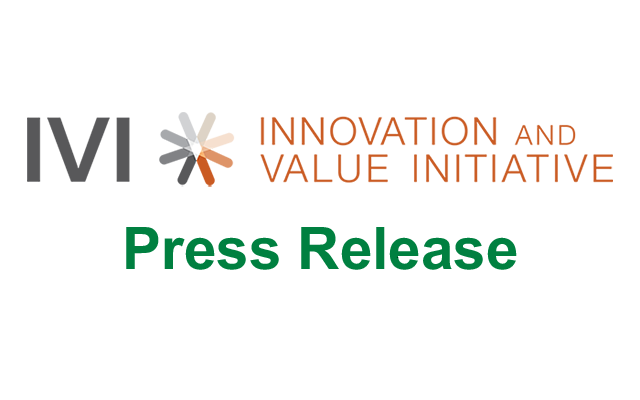ISPOR Conference Examines How New Approaches to Value Assessment May Help Move Toward More Informed Pricing
Washington, D.C. –- October 19, 2018 — At the ISPOR Summit 2018, the lead scientific advisor for the Innovation and Value Initiative (IVI) – a collaboration dedicated to advancing the science and improving the practice of value assessment in healthcare – today discussed incorporating novel elements of value within cost-effectiveness analysis.
Jeroen Jansen, Ph.D., who leads scientific development for IVI’s Open-Source Value Project (OSVP), argued in a presentation entitled “Moving beyond conventional cost-effectiveness analysis?” that the novel theoretical frameworks and elements of value that have been proposed in the health economic literature are interesting, but to assess their importance on estimates of value we need to formally incorporate them in actual cost-effectiveness analyses.
A concept frequently ignored in cost-effectiveness analysis relates to patient diversity. Jansen illustrated that coverage decisions based on a treatment’s value, if estimated for the hypothetical average patient, may result in inefficient use of resources for the heterogeneous patient population as a whole. “We may want to consider moving beyond averages, and formally incorporate heterogeneity in patient characteristics, treatment effects, and preferences in cost-effectiveness analysis.” Jansen said. “It’s feasibility, however, depends on the available data.”
The second element of value introduced revolves around the risk that a particular treatment may or may not work for a particular patient. Some patients may care about the extent of variation in benefits and risks with a specific treatment, not simply the averages. This concept has been referred to as the ‘value of hope.’
The third element of value that was presented relates to the fact that availability of an efficacious treatment has not only value to patients, but, as some argue, provides some degree of protection against the physical and financial risk among healthy individuals at risk for the disease as well.
“There is quite some debate about the novel elements of value that have been proposed, of which some are more controversial than others. However, in order to implement these in actual cost-effectiveness analysis and assess their relevance in an efficient manner we need a collaborative approach,” Jansen said. “And that’s what we’re doing with the OSVP. With the OSVP we develop flexible and open-source models for value assessment to facilitate a more constructive dialogue between stakeholders with different beliefs about relevant clinical data, modeling approaches, and value perspectives.”
According to Jansen, “realizing value assessment 2.0 means developing better approaches to value assessment to arrive at more relevant results for our diverse patient populations. By pushing forward the science of value assessment, we may get better insight how we can make efficient use of the available treatments given the diversity of patients, and as a result maximize outcomes for the total patient population.”
Jansen’s presentation was a part of the ISPOR Summit 2018 track: Novel Approaches to Value Assessment, Within the Cost-Effectiveness Framework. Speakers at the conference included a wide array of value assessment stakeholders including patient advocates, health economists, payers, researchers, policymakers, and life-science innovators. The summit complements the recently published work of ISPOR’s Special Task Force on U.S. Value Assessment Frameworks by creating a forum for discussion of its research agenda along with other current initiatives. The summit was held in Washington, D.C.
###
Media Contact:
Eric Hoffman
Schmidt Public Affairs
Telephone: (202) 285-0810
E-Mail: ehoffman@schmidtpa.com
Follow IVI on Twitter: @IVI_health
Follow IVI on Facebook: @innovationandvalueinitiative
Follow IVI on LinkedIn: Innovation and Value Initiative
About the Innovation and Value Initiative
The Innovation and Value Initiative (IVI) is a collaboration among thought leaders in academia, patient advocacy organizations, payers, life sciences companies, providers, delivery systems, and other organizations. It was created to raise the level of discussion regarding value in health care and find common ground in the approach to measuring and rewarding value. IVI’s Strategic Advisory Panel includes experienced leaders from across the health care industry. Their role is to provide advice and ensure the credibility and rigor in the research and policy products and to ensure all parties have a voice in IVI activities.
